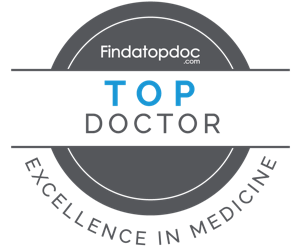Why Choose Our Suboxone Doctor in Minneapolis
At Overcoming Addictions LLC, our Suboxone doctor in Minneapolis provides comprehensive,
virtual medication-assisted treatment (MAT) to help individuals overcome opioid addiction.
Why Pick Overcoming Addictions LLC
We get it—substance abuse and mental health issues are tough. Our main goal? Making sure you get the help you need, right from your couch, with our virtual treatment options.
Why Go Virtual?
Let's face it, life’s busy. Virtual treatment lets you get the help you need without leaving home. No more worrying about how to get to appointments or fitting them into your schedule. Plus, it's private. You can talk to us without anyone knowing, which can make it easier to take that first step.
And hey, even the big companies that make alcohol and legal drugs know they have a role in preventing misuse. We keep that in mind in our approach.
Our Team Knows Their Stuff
Substance abuse messes with everything—your health, your relationships, your wallet. It’s a big deal (WebMD). Our team? They’ve seen it all and know how to help. We offer a mix of rehab, meds, support groups, and good old-fashioned talk therapy (SAMHSA).
We don’t do one-size-fits-all. Got a substance use disorder (SUD) and another mental health issue? We treat them together. Your treatment plan will be as unique as you are, considering your age, what substances you’re dealing with, and any other mental health issues.
Choosing Overcoming Addictions LLC means picking a team that’s all in for you. We’re here to help you break free from addiction and mental health struggles, and our virtual treatment options make it easier than ever. Let’s get you back on track.

Substance Abuse and Mental Health Support
Substance abuse and mental health issues are a tangled mess. We’re here to help you untangle it all and take back control of your life.
What’s Substance Abuse Anyway?
Abuse and addiction might sound like the same thing, but they’re not. Substance abuse is when you use drugs, alcohol, or meds in a way that’s bad for you. Some folks can stop or change their habits with the right help. Addiction, though, is a beast of its own—it’s when you can’t quit even though it’s messing up your life.
Substance Use Disorder (SUD) messes with your brain and behavior, making it hard to control your use. It can be mild or severe, with addiction being the worst. Symptoms can mess with your body, mind, and social life.
When Mental Health and Substance Abuse Team Up
It’s pretty common for folks with SUD to also have other mental health issues like anxiety, depression, ADHD, bipolar disorder, personality disorders, or schizophrenia. When these problems show up together, it’s called co-occurring disorders.
Treating co-occurring disorders means tackling both issues at once. If you only focus on the substance abuse and ignore the mental health part, you’re asking for trouble—like poor health and a higher chance of relapse (SAMHSA).
At Overcoming Addictions LLC, we customize treatment for each person’s mix of problems. We look at things like your age, what substances you’re using, and your specific mental health issues. Our treatment options include behavioral therapies, medication, rehab, support groups, and talk therapy—all online (NIMH).
By offering full-on support for both substance abuse and mental health, we aim to help you beat your challenges and stay on the path to recovery. We’re committed to giving you a safe, supportive space to start your journey to a healthier future.

Treatment Approaches
Everyone’s journey to kick substance use is different. That’s why we offer a mix of treatment options that fit your needs like a glove. We combine behavioral therapies and medications to give you a well-rounded path to recovery.
Behavioral Therapies
Behavioral therapies are a big part of what we do. They work wonders for folks dealing with both substance use and mental health issues (NIMH). These therapies can stand alone or team up with medications to help you manage your thoughts and actions related to substance use.
The aim here is to help you flip the script on your thought patterns and behaviors that lead to substance use. This might mean finding better ways to cope, getting better at talking things out, or tackling any mental health problems that might be fueling your substance use.
We offer a bunch of different therapies, like cognitive-behavioral therapy, contingency management, motivational enhancement therapy, and family therapy. Our healthcare pros will suggest the best fit for you based on what you need and what you’re going through.
Medication Options
On top of behavioral therapies, we’ve got a range of meds to help you out. These meds are great for tackling opioid, alcohol, and nicotine addiction, and they can also ease the symptoms of many mental health issues.
Medications can be a game-changer when it comes to handling withdrawal, cutting down cravings, and treating mental health disorders that come along for the ride. Some meds even pull double duty. For example, certain antidepressants can help with both depression and kicking nicotine.
At Overcoming Addictions LLC, we believe in a custom approach to meds. Our healthcare team will work with you to figure out the best medication plan based on your needs and health. We’ll keep an eye on how you’re doing and tweak things as needed to make sure the meds are working for you.
Taking the step to get help is huge. With our support for substance abuse and mental health, you can take back control and head towards a healthier, happier life.
Need a Hand?
Looking for help with substance abuse or mental health issues? It’s important to know where to turn. There are some great resources out there that can guide you to the support you need. Two of the best are the Substance Abuse and Mental Health Services Administration (SAMHSA) National Helpline and their treatment locator tool.

SAMHSA National Helpline
The SAMHSA National Helpline is a lifeline for anyone dealing with mental health or substance use problems. It's free, confidential, and available 24/7, every single day of the year. Whether you speak English or Spanish, you can get help. This service connects you to local treatment centers, support groups, and community organizations.
Need help? Just call 1-800-662-HELP (4357). The folks on the other end are trained pros who can give you immediate assistance and hook you up with the right resources in your area.
Treatment Locator
Another fantastic tool is the SAMHSA online treatment locator. This handy resource helps you find local mental health and substance use treatment services.
It's super easy to use. Just type in your ZIP code, and you'll get a list of nearby treatment centers. You can also text your ZIP code to 435748 to get info on local facilities.
These resources are game-changers on the road to recovery. They offer immediate, confidential support and can connect you with the right treatment options. Remember, asking for help is the first step to beating substance abuse and getting your life back on track.
Impact of Substance Use
Substance misuse and substance use disorders hit hard on individuals, families, and communities. The fallout goes way beyond health issues, touching on social and economic aspects too.
Social and Economic Costs
The price tag of substance misuse is mind-blowing. We're talking about $442 billion each year, covering health care, lost productivity, and criminal justice. Yet, only 10.4% of those struggling with substance use disorders get any help, and just a third of them receive decent care.
In the workplace, over 10 million full-time workers in the U.S. have a substance use disorder, making it a top cause of disability. Investing in prevention and treatment for employees isn't just good karma; it's smart business. For every buck spent on treatment, $4 is saved in health care and $7 in criminal justice (NCBI Bookshelf).
Public Health Initiatives
Given the massive costs, public health initiatives are crucial. The criminal justice and juvenile justice systems can make a big difference by focusing on health rather than punishment. Drug courts, for example, have successfully redirected people from jail to treatment.
Health care systems can step up too. They can ensure safe prescribing practices, train staff on non-addictive pain and anxiety management, and use Prescription Drug Monitoring Programs (PDMPs) more effectively (NCBI Bookshelf).
Companies that make and sell alcohol and legal drugs can also pitch in. They can promote responsible use and educate the public about the risks of substance misuse, especially when mixing medications with alcohol or other drugs. These efforts are all part of a bigger plan to tackle substance misuse and offer solid support for mental health and substance abuse issues.
Substance Misuse Awareness
Substance misuse can seriously mess up someone’s life and health. Here, we’ll chat about the role of companies that make and sell legal drugs, and the effects of substances like cannabis and alcohol.
Legal Drug Responsibility
Companies that produce and sell alcohol and legal drugs have a big part to play in stopping substance misuse. They can show they care by taking steps to prevent their products from being misused. This means making sure people know the risks of using these substances, especially when it comes to medications that can be addictive, either on their own or mixed with alcohol or other drugs (NCBI Bookshelf).
Here’s what they can do:
- Clearly explain the risks and side effects of their products.
- Promote safe and responsible use.
- Support programs that help people struggling with substance misuse.
By doing these things, companies can help prevent substance misuse and support those fighting addiction.
Cannabis and Alcohol Effects
Cannabis and alcohol are pretty common, but they can mess with your mental health. Cannabis is one of the most used drugs in England, with 1 in 13 people aged 16-59 having used it in the past year. Young folks aged 16-24 are even more likely to use it, with just under 1 in 5 having used cannabis between 2018 and 2019.
Alcohol, while legal and often socially acceptable, can make mental health issues worse. The long-term effects of alcohol depend on how much and how often it’s consumed. Drinking too much can lead to serious physical and mental harm, including self-harm and suicide. Very high levels of alcohol can cause psychosis.
Other substances, like New Psychoactive Substances (NPS) and Benzodiazepines, can also be dangerous. NPS, known as ‘legal highs’ before 2016, can cause confusion, panic, hallucinations, and poor judgment. Benzodiazepines, used to treat anxiety and as muscle relaxants, can be addictive and increase the risk of overdose when mixed with other substances.
Knowing the effects of these substances is key to raising awareness and helping people make smart choices about their use. We believe education is crucial in preventing substance misuse and are dedicated to providing comprehensive support for substance abuse and mental health.


